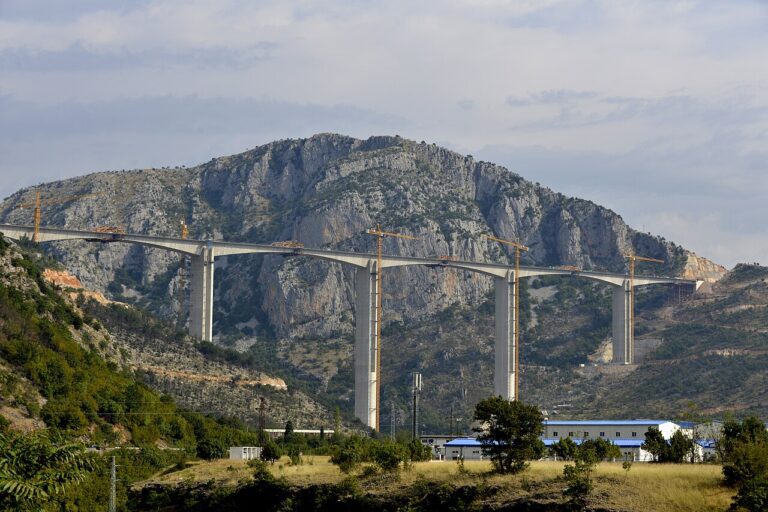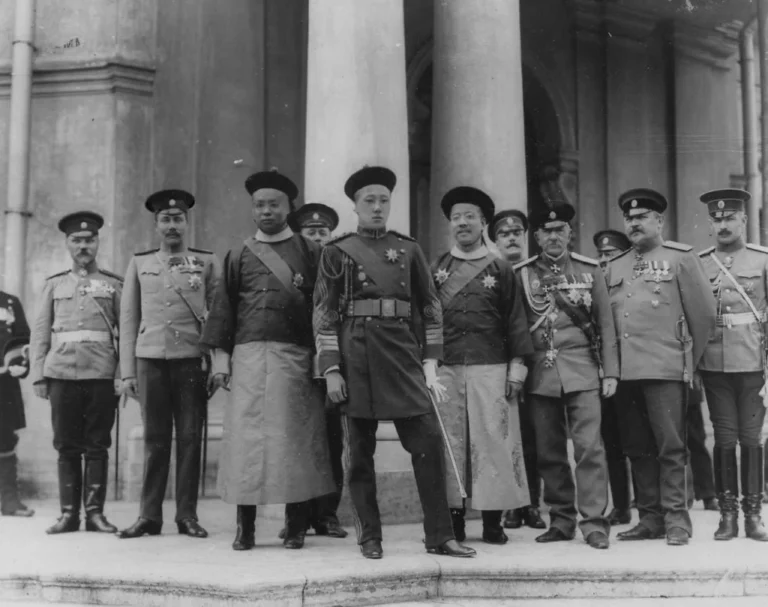
Amid renewed political tensions over the island, the EU needs to talk the talk over its interests vis-à-vis Taiwan.
Relations with Taiwan are increasingly on the agenda for the European policy circles as what has been dubbed the ‘Pelosi effect‘ has recently brought a flurry of foreign delegations to Taipei, including European ones. Although Taiwan welcomed more European visitors before the COVID-19 outbreak, the political attention that the island has received since the pandemic has undeniably heightened, showing Taiwan’s growing importance on the international stage while revealing the cracks in European foreign policy strategy.
Since the pandemic outbreak, Taiwan’s exclusion from the World Health Organization and other UN bodies has featured prominently in many European news outlets, sparking debate over China’s growing influence within international organizations. Then, the semiconductor shortage that came with the heights of COVID-19 placed relations with Taiwan high on the agenda of policy circles in Brussels and EU member states capitals alike.
Whether bilaterally or as part of the broader context of EU-China relations, European countries are increasingly confronted with the need to strike a delicate balance over their relations with Taiwan. Yet, for a geopolitical player that intends to carve out a distinctive role in US-China competition, discussions on what a Taiwan contingency would mean for the EU have surprisingly stayed on the sidelines.
Striking an Economic Balance
EU member states retain control of their foreign and security policies, including determining the contours of their own interpretation of a “One-China Policy”. And as both Lithuania and the Czech Republic have shown, some EU countries are more active than others in defining the trajectory of their relations with Taiwan.
Whether it is the refusal to expel a Taiwanese diplomat at the demand of the Chinese ambassador, a 150-member delegation visit to the island, or the opening of a representative office that has Taiwan – instead of Taipei – in its name, both Prague and Vilnius have stood their ground. And despite vows of Chinese retaliation, there was limited political and economic fallout for both the Czech Republic and Lithuania.
While economic coercion is not a new tactic of Beijing’s playbook, Vilnius’ case turned into a watershed moment for EU-China relations when it was reported that Beijing pressured German companies to stop using components made in Lithuania. Lithuania’s exports to China only accounted for 1 percent of the country’s GDP, but seeking to leverage intra-EU trade ties increased Beijing’s room for maneuver. The companies stated their plans to invest in the Baltic state remain unchanged, but German and Baltic business leaders reportedly voiced their unease with the economic consequences of Beijing’s retaliation and asked Vilnius to seek a “constructive solution.”
None of this, however, had Lithuania change its plans: Beijing’s informal discriminatory practices towards Vilnius prompted Brussels to request a panel at the World Trade Organization, and the Taiwanese representative office began operations in September 2022.
As High Representative Josep Borrell stated, the EU’s “One-China Policy does not prevent us […] from persisting and intensifying our cooperation with Taiwan.” Nonetheless, Brussels and other European capitals have to expect that their interactions with Taipei will likely trigger Beijing to issue not-so-veiled threats at best and attempt economic retaliation at worst.
Largely ineffective so far, China’s economic blackmailing has put its trade partners on alert. Brussels has finally taken note of the shifts in Beijing’s attitude towards what it considers its ‘core’ interests, including Taipei, and is revising its defensive economic strategy accordingly as the new anti-coercion instrument and calls to de-risk and diversify the supply chains suggest. However, as much as an economic strategy towards China is imperative, when it comes to Taiwan the EU also needs to talk the talk.
Talking Politics
The balance of power in the Taiwan Strait might not have yet decisively shifted but the status quo is not so static after all. Chinese warplanes incursions crossing Taiwan’s air defense identification zone have dramatically increased in the past year, with the intention to routinize the presence of Chinese aircrafts in the Strait and signal Beijing’s irritation during specific political events. And the visit by US House Speaker Pelosi in August 2022 unleashed more than just a flurry of diplomatic delegations. China’s overreaction to the visit turned into a de facto blockade, further contributing to the deterioration of the status quo in the Strait.
As Russia’s invasion of Ukraine has generated daunting comparisons with China and Taiwan, speculations about a ‘Taiwan contingency’ and its implications have intensified. Although the EU mentioned Taiwan for the first time in the Indo-Pacific strategy it released in September 2021, the private sector seems to be the one seeking to actively protect its interests in the region. Talks about the implication of different “Taiwan scenarios” have surfaced across boardrooms in recent times, as European businesses are trying to grapple with a changing geopolitical environment and intensifying rhetoric, and clauses on China-Taiwan tensions are making their way into commercial contracts.
The Biden administration has moved towards strategic clarity, repeatedly stating the commitment to defend the island should the necessity arise, and it is no secret that the US has long been pushing for transatlantic coordination over China, including on Taiwan. However, American officials’ desire to consider the US-EU sanctions against Russia as a blueprint for sanctions on China in the event of a military invasion of Taiwan was met with unease by their European counterparts, unwilling to take sides at this stage.
If domestic politics is a crucial driver of the US and China’s behavior towards Taiwan, the same cannot be said for Europe. Despite increased talks about the island’s importance “economically, commercially and technologically” for the Union as well as concerted efforts by the European institutions, the issue of a potential Taiwan invasion has hardly entered the mainstream European public debate. While de-risking in all its forms seems more or less high on the policy agenda across the member states, the absence of urgency in its communication is starkly at odds with the initial assessments of the devastating economic consequences linked to different Taiwan contingency scenarios.
During his latest visit to Beijing, French President Macron’s remarks over Taiwan made headlines and left many puzzled over Paris’ commitment to the transatlantic alliance, and, more broadly, the issue of what an EU reaction to a war in the Taiwan Strait would be like. With all the talk about strategic autonomy, no one would really expect the EU to blindly follow Washington’s lead. Yet leaving the issue to bold and easily misunderstood statements is also not a viable strategy.
Surely, the EU is still grappling with the economic repercussions of the Russian invasion of Ukraine, including disrupted commercial relations, despite the relatively minor importance of EU-Russia trade ties outside of energy. Intra-EU division over the imposition of economic sanctions on Moscow emerged immediately, as the push for a tougher line on Russia from the majority of Central and Eastern European countries was met with resistance in some other Western member states, notably in Germany. A similar situation is not unimaginable should the political conditions in the Taiwan Strait deteriorate rapidly, especially as trade ties with China are far more important than those with Russia.
Clearly, finding agreement on how to deal politically with Beijing in the event of a Taiwan contingency is no simple endeavor. That is precisely why the EU needs to start to seriously consider the worst-case scenario and its implications for Europe, sooner rather than later.
Written by
Ludovica Meacci
ludovicameacciLudovica Meacci is a PhD Researcher at the Centre for Security, Diplomacy and Strategy of the Brussels School of Governance. Before joining BSoG, Ludovica worked on Chinese foreign policy and EU-Asia relations in different roles, including at the Secretariat of the European Parliament, the Mercator Institute for China Studies and Jane's Information Group. Her work has appeared in the Financial Times, South China Morning Post, Foreign Policy, and ISPI among others.


